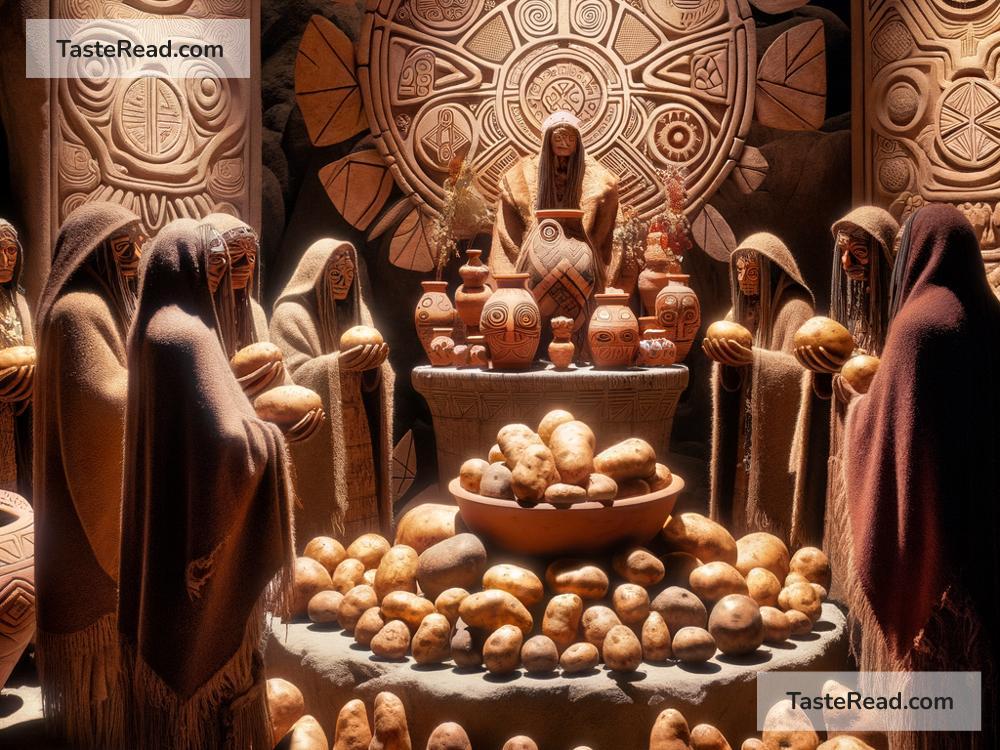Ancient Rituals Involving Potatoes: A Fascinating Journey into History
Potatoes are one of the world’s most beloved foods today. Mashed, fried, or baked, they are a staple in so many dishes around the globe. But did you know that potatoes weren’t always just food? In ancient cultures, potatoes held deep spiritual meaning and were part of rituals and ceremonies. While potatoes are native to the Andes of South America, their significance went far beyond the dinner table. Let’s explore how ancient people used this humble tuber in fascinating and unexpected ways.
The Origin of Potatoes
Potatoes originated in the Andes Mountains of modern-day Peru and Bolivia about 7,000 to 10,000 years ago. Indigenous peoples living in these regions were the first to cultivate them. For the people in these ancient societies, potatoes were much more than a source of nutrition; they were deeply connected to their traditions, beliefs, and even spiritual practices.
These early farmers saw potatoes as gifts from the Earth and the gods. Their survival depended on crops, so it’s not surprising they viewed potatoes as sacred. Many rituals involving potatoes were designed to honor the forces of nature, attract good harvests, or protect communities from famine.
Potatoes in Rituals of the Andes People
The Andean people, specifically groups like the Inca, used potatoes in spiritual ceremonies. They believed potatoes had magical properties because they came directly from Pachamama, the Earth Mother, who was one of their most revered deities.
Rituals to Ensure a Good Harvest
One of the most common ceremonies featuring potatoes was conducted to ensure a successful growing season and harvest. Priests and shamans performed elaborate rituals before planting potato seeds. They would hold the seeds while reciting prayers or chants, asking Pachamama to bless the soil and grant fertile conditions.
Sometimes, potatoes themselves were offered to the gods as a sacrifice. Farmers would bury cooked or raw potatoes in the ground during planting as a symbolic way of “giving back” to the Earth. They believed this ritual kept the balance between humans and nature, ensuring the fields were fertile and the harvest plentiful.
Potato Amulets
The Andean people also carried potato-based amulets for spiritual protection. They believed these amulets could ward off illness and misfortune. For example, they might carve sacred symbols or shapes into dried potatoes and wear them or place them in their homes as a protective charm.
Healing Rituals
In addition to agricultural ceremonies, potatoes were used in healing rituals. Ancient healers believed potatoes had the power to draw out sickness or negative energy. In some cases, certain types of potatoes were mashed and placed on the skin to treat wounds or reduce inflammation. The healing process was often accompanied by prayers to Pachamama or other spiritual energies.
The Potato’s Role in Festivals and Celebrations
Potatoes were also central to larger festivals, where entire communities participated in honoring nature and the gods. One notable tradition involved the preparation of a sacred potato-based dish that was shared among families as a symbol of unity and gratitude. Communal feasts often included large quantities of potatoes in various forms: boiled, roasted, or baked underground in pit ovens.
During these festivals, music, dancing, and storytelling took place around the potato offerings. People expressed their appreciation for the crop and for their strong connection to the Earth and its cycles. Even today, remnants of these ancient festivals can be seen in Andean cultures during harvest and planting seasons.
Superstitions and the Mystical Potato
Ancient peoples believed potatoes held mystical powers. One popular superstition in Andean cultures was that the size and shape of a potato could predict the future. Before planting, farmers would examine potato tubers and look for signs in their appearance. A large, smooth potato was seen as a good omen, symbolizing a year of abundance, while a misshapen or small potato warned of possible hardships.
Another belief was that potatoes could absorb negative energy. If someone felt cursed or afflicted by bad luck, they might sleep with a potato under their pillow or keep one in their pocket. The potato was thought to absorb the harmful forces and restore balance and peace to the person’s life.
The Spread of Potatoes and Their Legacy
When potatoes were introduced to Europe and other parts of the world in the 16th century, their spiritual significance diminished. The focus shifted to their nutritional value and adaptability in farming. However, in the Andes, potatoes remain deeply tied to the people’s identity and traditions. Even today, certain communities use potatoes in rituals that honor their ancestors and the Earth.
While it may seem strange to view potatoes as mystical objects, for ancient cultures, their existence was nothing short of miraculous. These rituals reflect humanity’s enduring gratitude for nature’s gifts and its deep desire to live in harmony with the world.
Conclusion
The potato’s journey from spiritual tool to everyday food is a reminder of how much we can learn from ancient traditions. For the Andean people, potatoes weren’t just food; they were symbols of life, hope, and connection to the divine. While we may not use potatoes in rituals today, their history teaches us to appreciate the humble things in life and see the world around us as something extraordinary. So, next time you enjoy a plate of fries or a bowl of mashed potatoes, think of the ancient people who saw magic in this earthy tuber.


